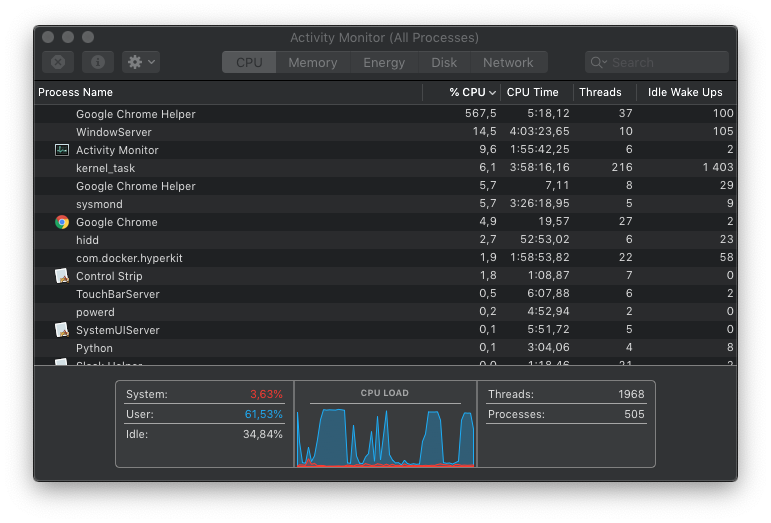Qt for WebAssembly: Multithreading
June 26, 2019 by Morten Johan Sørvig | Comments
As of the 5.13 release, Qt for WebAssembly now has experimental support for multithreading. This has much of the same benefits as threads on other platforms: the application can offload work to secondary threads to keep the main thread responsive, and make use of multiple CPU cores.
Secondary threads on the web platform has one additional benefit in that they can block without unwinding the stack. This is not true for main thread, which must return control to the browser after processing an event or risk having the browser show the "page is unresponsive" notification.
WebAssembly multithreading has been possible but disabled by default for some time. Browsers have now begun enabling it again, first out is Chrome 67.
Old New Thing
These days it’s not too often that we get to introduce threads as a feature, so I took the opportunity to touch up Qt's classic Mandelbrot threading example.

Upgrades include now using all CPU cores instead of just one (using QThread::idealThreadCount() to control the amount of worker threads). A quick peek at the task manager confirms this:

Rest assured, CPU usage does return to 0% when the application is idle.
An example build of the demo and source code are available. The build should run on desktop Chrome, and also on Firefox if you enable javascript.options.shared_memory in about:config page.
Practicalities
Next, lets look at some of the practicalities of working with multithreaded builds of Qt with Emscripten. If you have experience in this area you’d like to share, please chime in in the comments section below.
Emscripten is doing most of the heavy lifting here, and provides support for the pthreads API, implemented using Web Workers and SharedArrayBuffer. Qt then reuses its existing unix QThread implementation.
Enabling The default Qt for WebAssembly build disables threads by default. To enable, build from source and configure with the -feature-thread flag. We’ve found that emscripten 1.38.30 works well for threaded builds.
Threading-enabled binaries will not run on browsers with SharedArrayBuffer disabled; you may see error messages such as:
CompileError: wasm validation error: at offset 5711: shared memory is disabled
Error: WebAssembly.Module doesn’t parse at byte 5705: can’t parse resizable limits flags”
Main thread deadlocks Calling QThread::wait (or pthread_join) on the main thread may deadlock, since the browser will be blocked from servicing application requests such as starting a new Web Worker for the thread we are waiting on. Possible workarounds include:
- Pre-allocate Web Workers using QMAKE_WASM_PTHREAD_POOL_SIZE (maps to emscripten PTHREAD_POOL_SIZE)
- Don't join worker threads when not needed (e.g. app exit). Earlier versions of the Mandelbrot demo was freezing the tab on exit; solved by disabling application cleanup for the Qt build which powers it.
Fixed Memory Size: Emscripten will normally increase the heap size as needed, starting from small initial allocation. This is not yet supported for multithreaded builds and a fixed memory size must be set. We’ve empirically determined that most (desktop) browsers limit this initial allocation to 1GB, and this is the size Qt sets by default. You can change the value by setting QMAKE_WASM_PTHREAD_POOL_SIZE (maps to emscripten PTHREAD_POOL_SIZE)
See the documentation or Wiki page for further info on Qt for WebAssembly, or ask below.
Blog Topics:
Comments
Subscribe to our newsletter
Subscribe Newsletter
Try Qt 6.10 Now!
Download the latest release here: www.qt.io/download.
Qt 6.10 is now available, with new features and improvements for application developers and device creators.
We're Hiring
Check out all our open positions here and follow us on Instagram to see what it's like to be #QtPeople.


